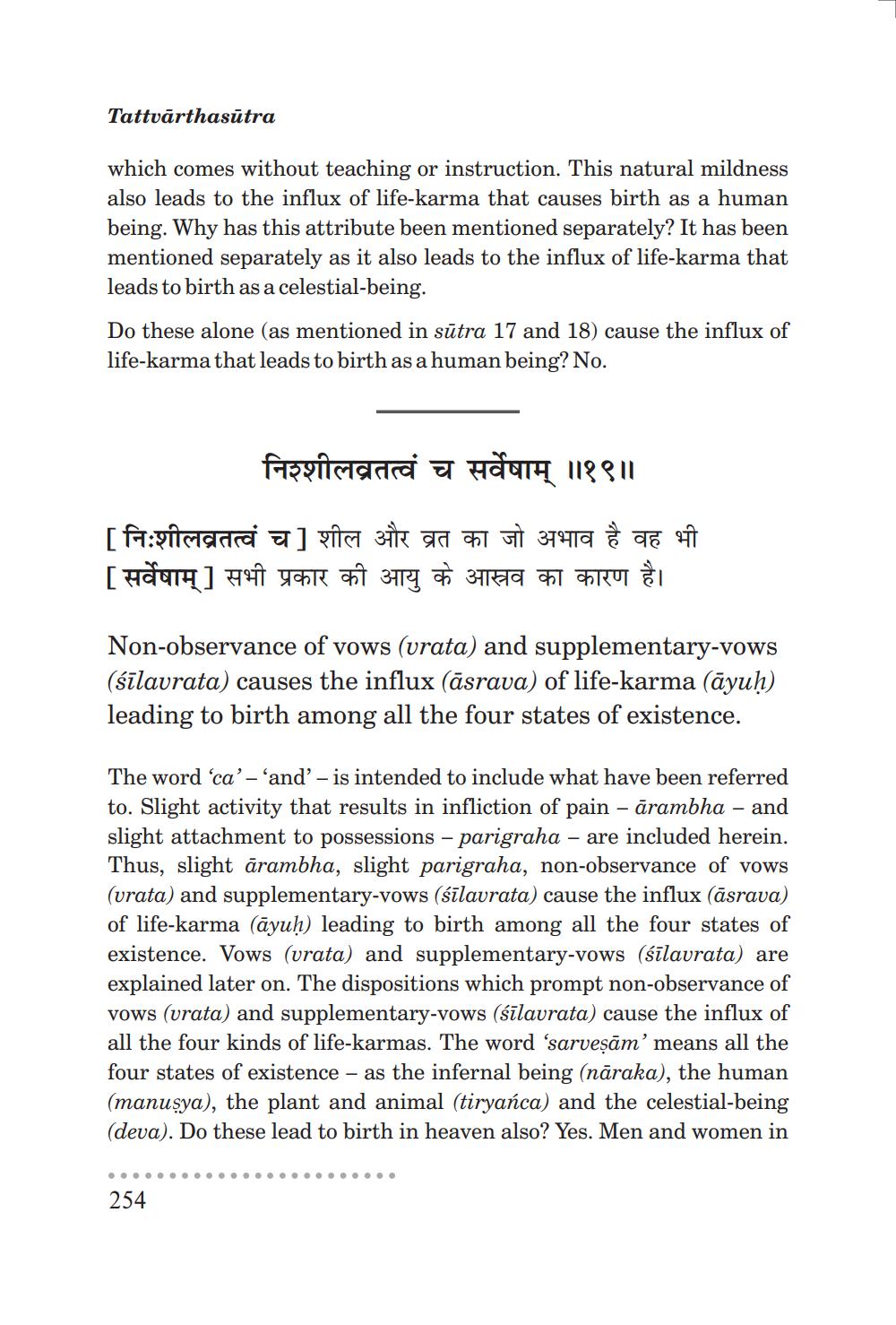________________
Tattvārthasūtra
which comes without teaching or instruction. This natural mildness also leads to the influx of life-karma that causes birth as a human being. Why has this attribute been mentioned separately? It has been mentioned separately as it also leads to the influx of life-karma that leads to birth as a celestial-being. Do these alone (as mentioned in sūtra 17 and 18) cause the influx of life-karma that leads to birth as a human being? No.
निश्शीलव्रतत्वं च सर्वेषाम् ॥१९॥
[निःशीलव्रतत्वं च ] शील और व्रत का जो अभाव है वह भी [ सर्वेषाम् ] सभी प्रकार की आयु के आस्रव का कारण है।
Non-observance of vows (vrata) and supplementary-vows (śīlavrata) causes the influx (āsrava) of life-karma (āyuḥ) leading to birth among all the four states of existence.
The word 'ca'-'and' - is intended to include what have been referred to. Slight activity that results in infliction of pain - ārambha – and slight attachment to possessions - parigraha - are included herein. Thus, slight ārambha, slight parigraha, non-observance of vows (vrata) and supplementary-vows (śīlavrata) cause the influx (āsrava) of life-karma (āyuḥ) leading to birth among all the four states of existence. Vows (vrata) and supplementary-vows (śīlavrata) are explained later on. The dispositions which prompt non-observance of vows (urata) and supplementary-vows (śīlavrata) cause the influx of all the four kinds of life-karmas. The word 'sarvesām' means all the four states of existence - as the infernal being (nāraka), the human (manusya), the plant and animal (tiryańca) and the celestial-being (deva). Do these lead to birth in heaven also? Yes. Men and women in
..
.
.
.
.
.
.
.
.
.
.
.
.
.
.
.
.
.
.
.
.
254




